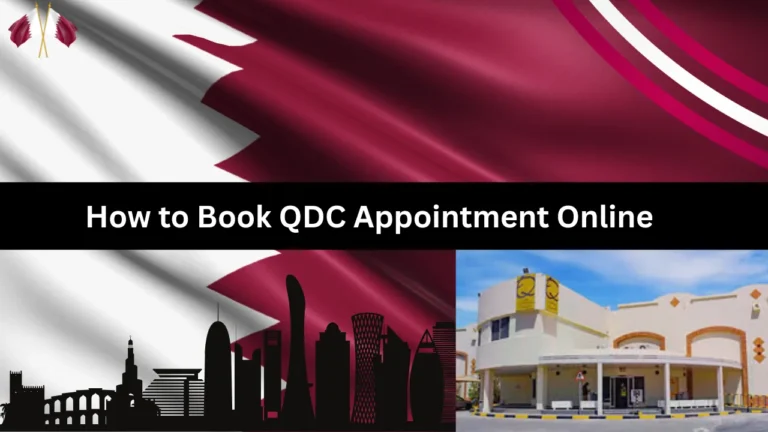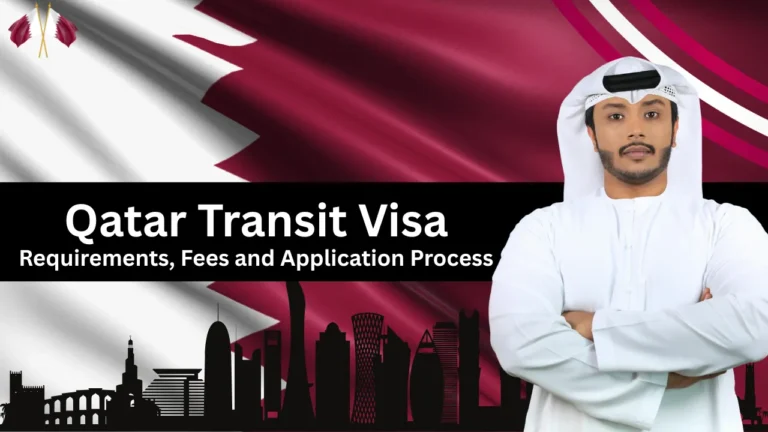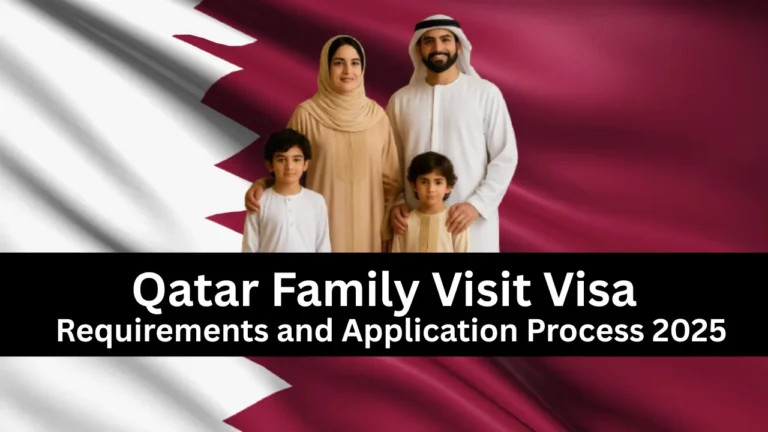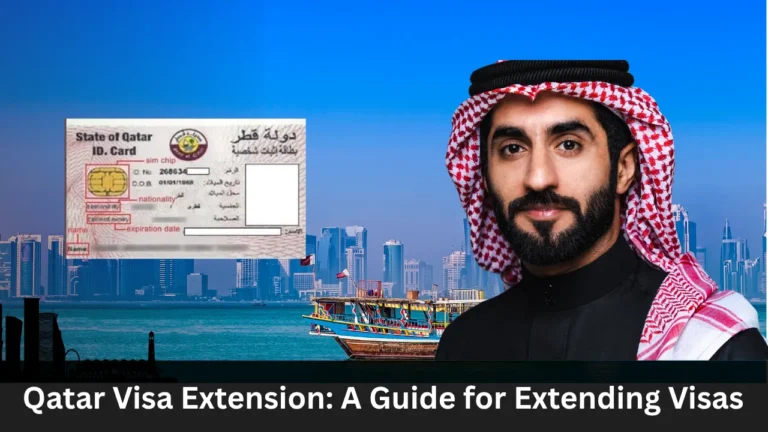Getting a Qatar visa as a Pakistani citizen isn’t hard, but knowing the right steps makes it easier. Whether you want to visit family, explore Doha, or look for work, you’ll need the right visa. This guide walks you through every option, from tourist visas to work permits. We’ll also show you how to apply, what documents you need, and how long it all takes, no confusion, no stress.
Do Pakistani Citizens Need a Visa to Visit Qatar?
Yes, most Pakistani citizens need a visa to enter Qatar. But don’t worry, there are several easy options. If you hold a valid visa or residence permit from countries like the US, UK, Canada, Schengen, Australia, or New Zealand, you may qualify for visa on arrival. Others may need to apply in advance through the Hayya portal or a Qatari embassy.
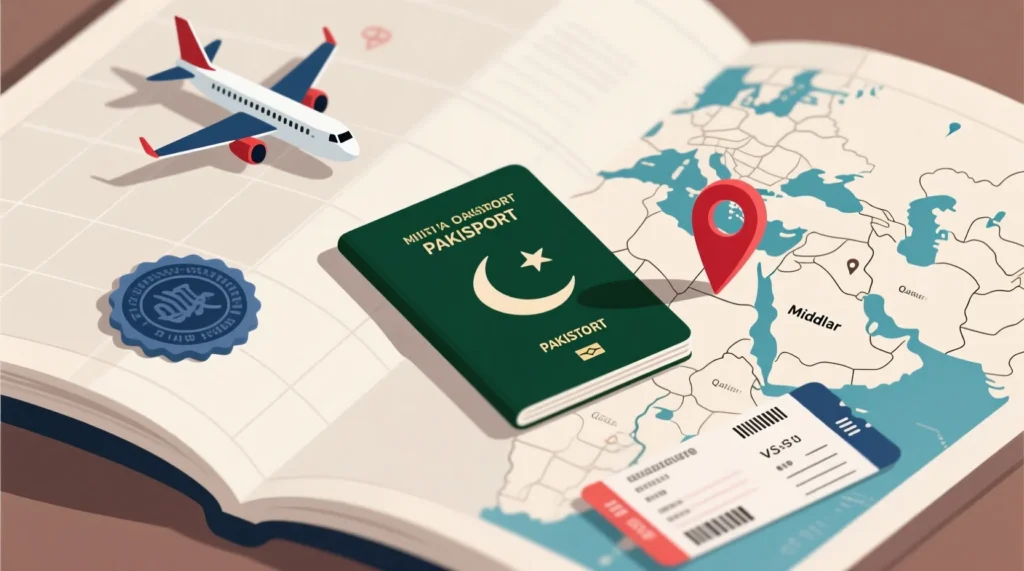
Some travelers qualify for visa-free entry, but only under special rules. Before you book your flight, check which type fits your situation. It’ll save you time, and possibly money at the airport.
Types of Qatar Visas Available for Pakistani Citizens
Qatar offers different types of visas, depending on why you’re visiting. Each visa has its own rules, documents, and time limits. Here’s a quick look at the main options for Pakistani travelers:
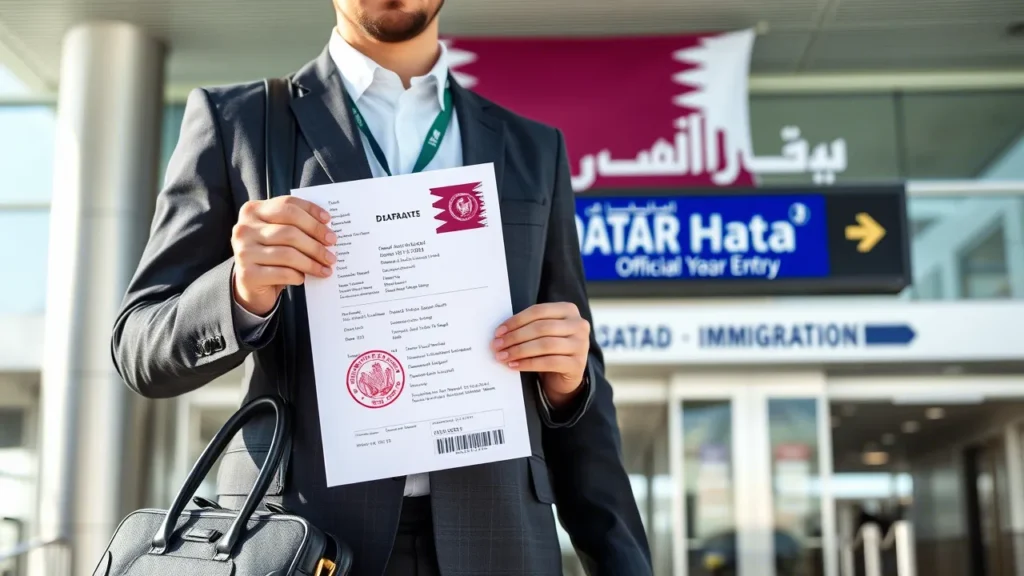
Tourist Visa
This visa is for short trips. You can use it to explore Qatar, visit famous places, or meet friends. It’s valid for up to 30 days and can be extended once.
Family Visit Visa
Planning to visit relatives living in Qatar? This visa lets you stay with family for up to 3 or 6 months, depending on your documents and sponsor.
Business Visa
This is for meetings, events, or short-term business activities. You’ll need an invitation from a Qatari company to apply.
Student Visa
If you’re going to study in Qatar, you’ll need a student visa. It’s usually arranged by the university or school offering admission.
Transit Visa
Stopping in Qatar for a short time while traveling somewhere else? A transit visa allows a stay of up to 96 hours if your stopover is longer than five hours.
Work Visa
Want to work in Qatar? This visa is offered through your Qatari employer. It requires a job contract, medical tests, and official approval before travel.
Qatar Visa Requirements for Pakistani Citizens
Before you apply for a Qatar visa, make sure you have the right documents. These papers help prove who you are, why you’re traveling, and that you’re ready to enter the country. Below is a list of the most common requirements:
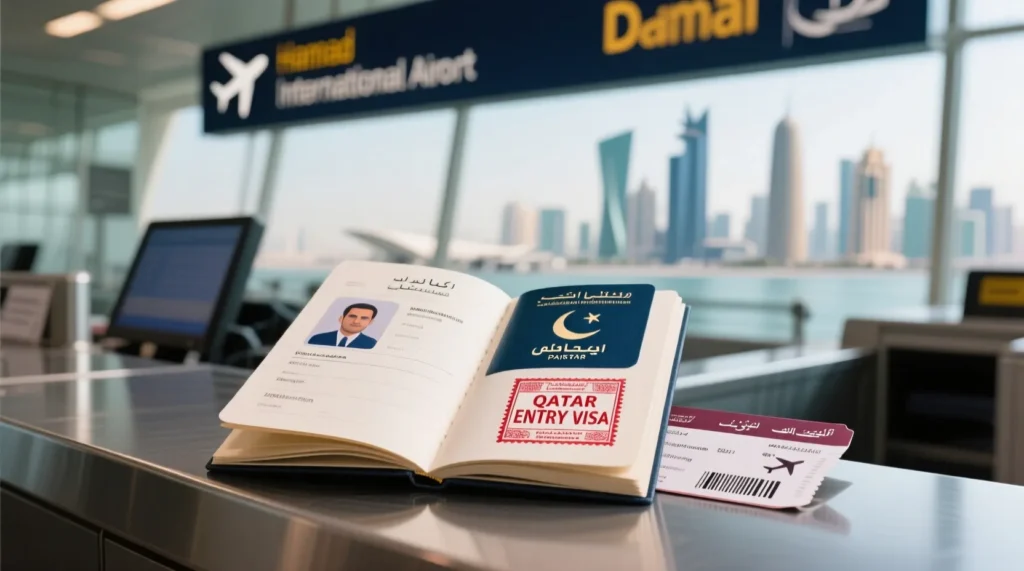
Valid Passport
Your passport must be valid for at least 6 months from the date you plan to enter Qatar. Damaged or expired passports won’t be accepted.
Passport-Size Photographs
You’ll need recent photos with a white background. Make sure your face is clear, and your expression is neutral.
Visa Application Form
Whether you apply online or through the embassy, you’ll need to fill out a form. It includes your personal info, travel plans, and visa type.
Proof of Travel
This includes a return ticket or onward flight. Qatar needs to see that you plan to leave the country when your visit ends.
Hotel Booking or Accommodation Proof
You’ll need to show where you’ll stay. A hotel reservation or a letter from a family member (if staying with them) is usually required.
Financial Proof
You might be asked to show bank statements or other proof that you can afford your stay.
Travel Health Insurance (Optional, but Recommended)
Some visas need insurance. Even if it’s not required, it’s smart to have coverage in case of emergencies.
Polio Vaccination Certificate
This is often required for Pakistani citizens. Make sure your polio vaccination is up-to-date before you apply.
The exact documents can change depending on your visa type, so always double-check before submitting your application. Missing even one document can delay or reject your visa.
Step-by-Step Application Process for a Qatar Visa
Applying for a Qatar visa can be straightforward if you follow the right steps. Whether you’re applying online or through an agent, here’s a simple breakdown to guide you through the process:
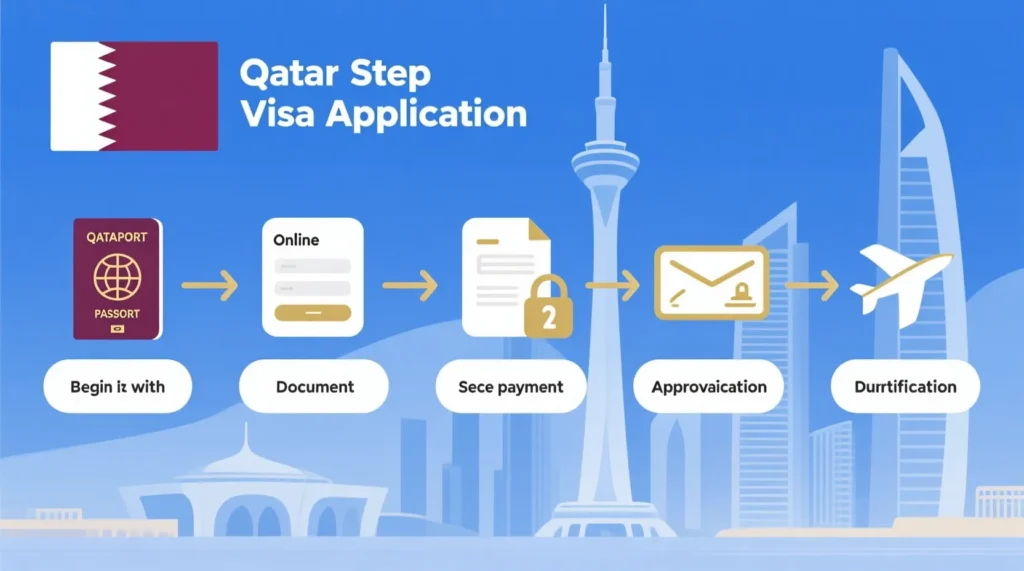
- Choose the Right Visa Type
Start by identifying the visa type you need – tourist, business, family visit, or work visa. Each has its own requirements and validity. - Prepare Required Documents
Gather necessary documents such as a valid passport, passport-size photographs, flight bookings, hotel reservations, and any invitation letters (if applicable). - Submit the Application Online or In-Person
You can apply through the Qatar Visa Portal or with the help of a travel agent. Fill in the application form accurately and upload the required documents. - Pay the Visa Fee
Pay the visa processing fee online via credit/debit card or through your agent. Fees vary depending on the visa type and duration. - Track Your Application
After submission, you’ll receive a reference number. Use it to track the status of your visa online. - Receive Your Visa
Once approved, your visa will be emailed to you. Take a printout and carry it with your passport when you travel. - Arrival in Qatar
On arrival, show your visa at immigration. Make sure your travel documents and visa details match exactly to avoid any issues.
Visa Fees and Processing Time
The cost of a Qatar visa depends on the type of visa you are applying for. For example, a tourist visa usually costs around QAR 100, while other types like work or business visas may have higher fees. You can pay the visa fee online using a credit or debit card. Processing time also varies. Tourist visas are often processed within 1 to 3 working days. However, work and family visas may take a few weeks. It’s a good idea to apply early and keep all documents ready to avoid delays.
Qatar Visa Validity and Stay Duration
Understanding how long you can stay in Qatar with your visa is important to avoid any issues during your visit. Below we’ve explained the validity period of various visa types, how extensions work, and what happens if you overstay your visa.
Tourist and Visit Visa Duration
Tourist and visit visas for Qatar are usually valid for 30 days, with the option to extend for another 30 days in many cases. Some nationalities under visa-waiver agreements may receive a 90-day stay without needing to apply for a visa. Always check your visa type on the MOI Portal or through the Metrash2 App.
Extension Policies
If you wish to stay longer in Qatar, you can request a visa extension online through the Metrash2 App, the MOI website, or by visiting the MOI Service Center. Most tourist visas are extendable once, allowing a total stay of up to 60 days. Extensions should be done before your visa expires to avoid fines.
Overstay Fines and Penalties
Overstaying your visa in Qatar can lead to serious consequences. The current fine is QAR 200 per day of overstay. You must pay this fine before exiting the country or applying for a visa extension. Repeated overstays can affect your ability to enter Qatar in the future. Always track your visa status via the Metrash2 App or MOI e-services.
Special Notes for Female and Minor Applicants from Pakistan
If you’re a woman or applying for a visa for your child (under 18), there are some extra requirements and rules to follow. Qatar has specific visa guidelines for females and minors to ensure their safety and proper documentation.
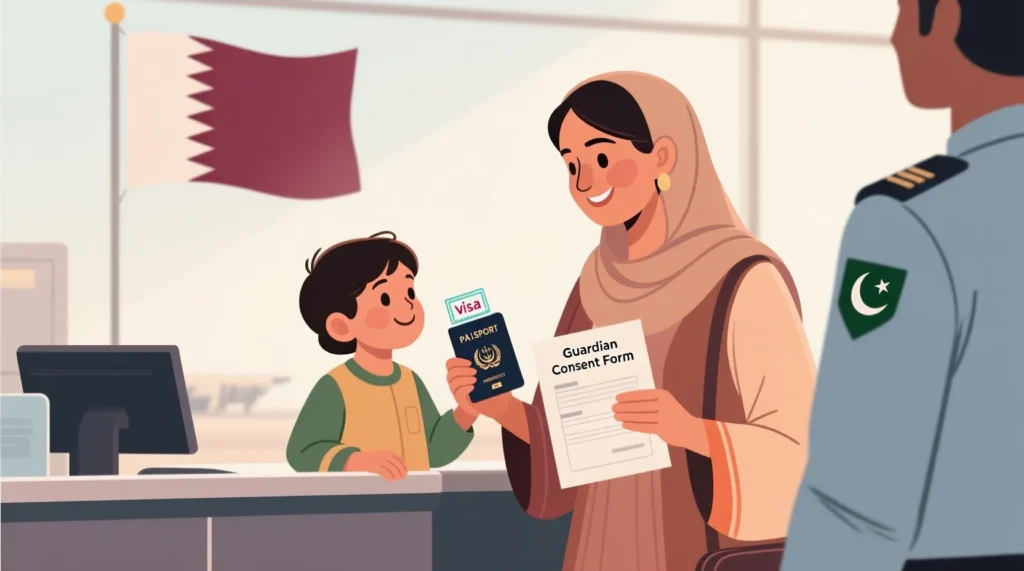
Additional Documentation
For female applicants traveling alone or with children, you may need extra documents. These can include:
- A No Objection Certificate (NOC) from your father or husband
- A copy of the male guardian’s Qatar ID and passport
- A relationship certificate if you’re applying as a guardian of a minor
These documents help the Qatari authorities confirm your relationship and the reason for travel.
Age Restrictions and Guidelines
- Girls under the age of 18 generally cannot travel alone unless accompanied by a parent or legal guardian.
- Male minors may also face travel restrictions without an adult.
- Some visa types may require both parents’ consent if a minor is traveling with one parent or someone else.
Make sure to check the latest guidelines from the Qatar Embassy in Pakistan or the MOI Qatar website to avoid delays or rejections.
Tips for a Successful Qatar Visa Application
Common Rejection Reasons
Understanding why visas are rejected can help you avoid the same mistakes. Common reasons include incomplete documents, incorrect information, invalid passport, or lack of sufficient financial proof. Also, applying for the wrong visa type or overstaying a previous visa can lead to rejection.
Do’s and Don’ts
Do’s: Always double-check your documents, ensure your passport is valid for at least six months, and apply through official channels like the MOI portal. Use a reliable sponsor if required.
Don’ts: Don’t submit fake or forged documents. Don’t book travel until your visa is approved. Never overstay your visa, as it may result in a ban.
Checklist Before Submission
- Valid passport (min. 6 months validity)
- Clear passport-size photo
- Travel itinerary or hotel booking (if required)
- Proof of funds or sponsorship
- Correct visa application form (typed and signed)
- Additional documents based on visa type (e.g., invitation letter, business documents)
Following these tips can boost your chances of a successful visa approval on the first attempt.
Frequently Asked Questions (FAQs)
What are the different types of visas in Qatar?
There are several types of visas in Qatar, including tourist visas, family visit visas, work visas, business visas, transit visas, and GCC resident visas. Each visa type is designed for a specific purpose and has its own eligibility criteria.
What is the process of a Qatar visa from Pakistan?
To apply for a Qatar visa from Pakistan, you typically need a valid passport, recent photographs, and a sponsor (individual or company). The application can be submitted online or through the QVC (Qatar Visa Center) for biometric verification and document submission.
What is the difference between A2 and A3 visa in Qatar?
A2 visas are usually issued to government-related personnel, while A3 visas are often granted to domestic workers like housemaids and drivers. Each has different terms, conditions, and sponsoring entities.
What is an A1 visa in Qatar?
An A1 visa is generally issued to diplomatic staff or high-level government officials. It comes with special privileges and is not intended for general employment or commercial activities.
What is QVC visa in Qatar?
A QVC visa refers to the visa process managed by the Qatar Visa Center. It’s designed for workers coming from countries like Pakistan, where applicants undergo biometric verification and medical tests before arriving in Qatar.
What are the different levels of visa?
Visa levels usually refer to the classification of visas such as short-term, long-term, and multiple-entry. These levels depend on the visa purpose, such as work, visit, or residency.
What is the difference between ETA and tourist visa in Qatar?
An ETA (Electronic Travel Authorization) allows eligible travelers to enter Qatar without a traditional visa, typically for short stays. A tourist visa, on the other hand, is applied for through the official portal and is suitable for general tourism.
Which is the longest visa in Qatar?
The residency (RP) or work visa is typically the longest-lasting visa in Qatar, often valid for 1 to 3 years and renewable based on employment or residency status.
Conclusion
Understanding the different types of visas in Qatar can make your travel or relocation process much smoother. Whether you’re visiting for work, tourism, or family reasons, knowing the right visa type and its requirements helps you avoid delays and complications. From A1, A2, A3 visas to ETA and QVC, each visa serves a specific purpose. Always check the latest updates from official sources or consult a visa expert to ensure you apply for the correct category. Planning ahead saves time, money, and stress.


